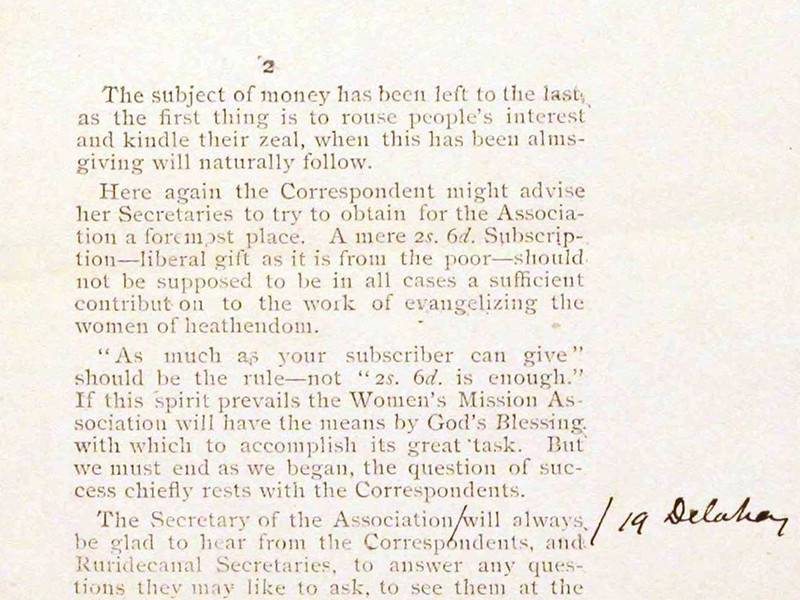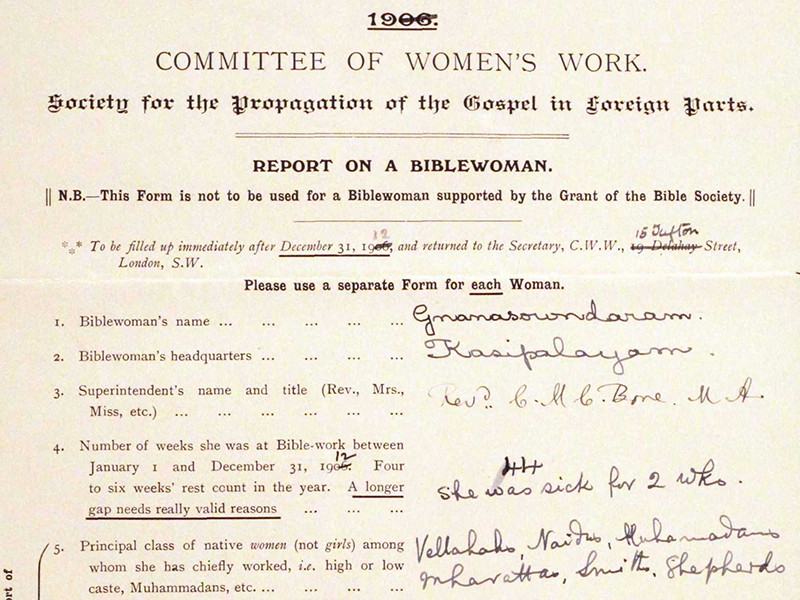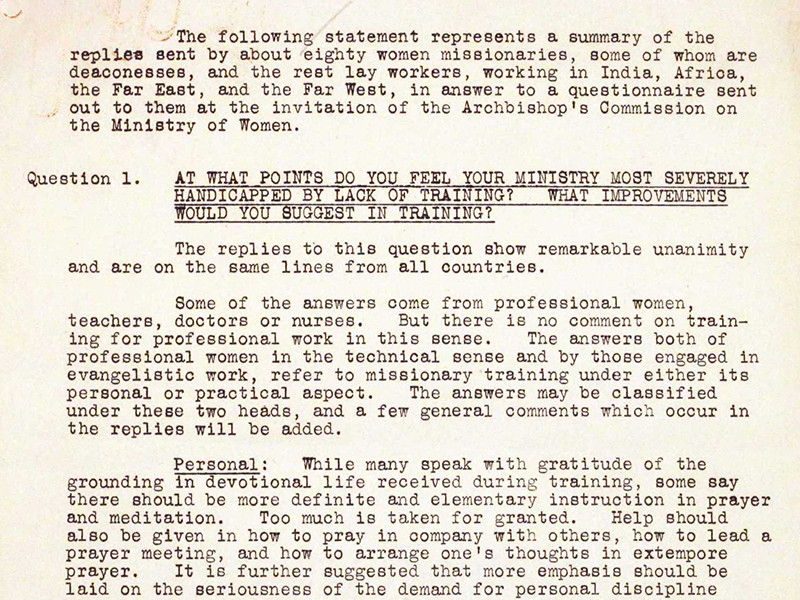Colonial Women Missionaries of the Committee for Women's Work, 1861–1967

Records of the Committee for Women's Work, 1861–1967
Long and unwearied as the labours of the Society for the Propagation of the Gospel have been… there has been felt an increasing want of some additional agency for the Promotion of Female Education among the Heathen.December 1866, page 3
Access the full collection
Access the full archive of Colonial Women Missionaries of the Committee for Women's Work, 1861–1967.
Institutional Free Trial
Start your free trialRegister for a free 30-day trial of Colonial Women Missionaries of the Committee for Women's Work, 1861–1967, for your institution.
Institutional Sales
Visit Sales PagesellFor more information on institutional access, visit our sales page.
Single User License
Purchase a license below to view the full collection.
Already have a license? Sign in.
Discover stories of missionary women and their promotion of female education

The United Society Partners in Gospel (USPG) is a UK-based Anglican missionary organisation that operates globally. From the eighteenth to the early twentieth century the USPG went by the name of the Society for the Propagation of the Gospel in Foreign Parts (SPG).
In 1866 the SPG established a semi-autonomous body, the Ladies' Association for the Promotion of Female Education in India and other Heathen Countries. In 1895 this became the Womens' Missionary Association for the Promotion of Female Education in the Missions of the SPG. The SPG later established a Committee for Women's Work in 1904.
These organisations gave women the opportunity to train and work as missionaries, at a time when female education was highly restricted and controversial. The missionaries largely focused on educating and converting women to Christianity, although they did teach and convert others too. This collection includes documents from these organisations, including minutes of main and sub-committees, candidates' books, letters received and sent, and reports.
Contents
Colonial Women Missionaries of the Committee for Women's Work, 1861–1967...
Records of the Committee for Women's Work, 1861–1967
Discover
Highlights

Licensed to access Questionnaire sent to staff of overseas Girls Schools and their replies (1 file), c.1891–1896
This document gives an insight into the opposition to missionaries from Hindus. Brahmins were the priestly caste within Hindu society and are said to have been “a great hindrance as they always try to upset the work” (image 15).
Insights
These records cover the full range of countries where the committee was active. The countries covered include India, Burma, China, Japan, Syria, South Africa, Madagascar, Mauritius, Myanmar, and Sri Lanka.
Documents focus upon the progress of establishing Christian schools around the world. Details include how many students have been recruited, teacher shortages, supply shortages, and requests for money.
The association’s financial situation varies throughout the period. In their early years they struggled to raise enough money to cover the increasing costs abroad and the documents discuss the consideration and implementation of budget cuts.
These documents contain commentary on various worldwide events during the period 1861–1967. The First Sino-Japanese War (1894–1895), the abolition of slavery in Madagascar (1896), the Lucknow plague (1904), and the First World War (1914–1918) are all discussed.
Japanese residents of Korea showed resistance to missionaries' attempts to convert them to Christianity. This resistance was sufficient to force the missionaries to conclude that they would not be able to convert enough locals as to make the exercise worthwhile.
There are numerous examples of resistance throughout the collection, including the resistance of individuals and of other religious leaders, for example Brahmins (Hindu priests) in India.
Unlock Historical Research for Your Institution
Provide your students and researchers with direct access to unique primary sources.








